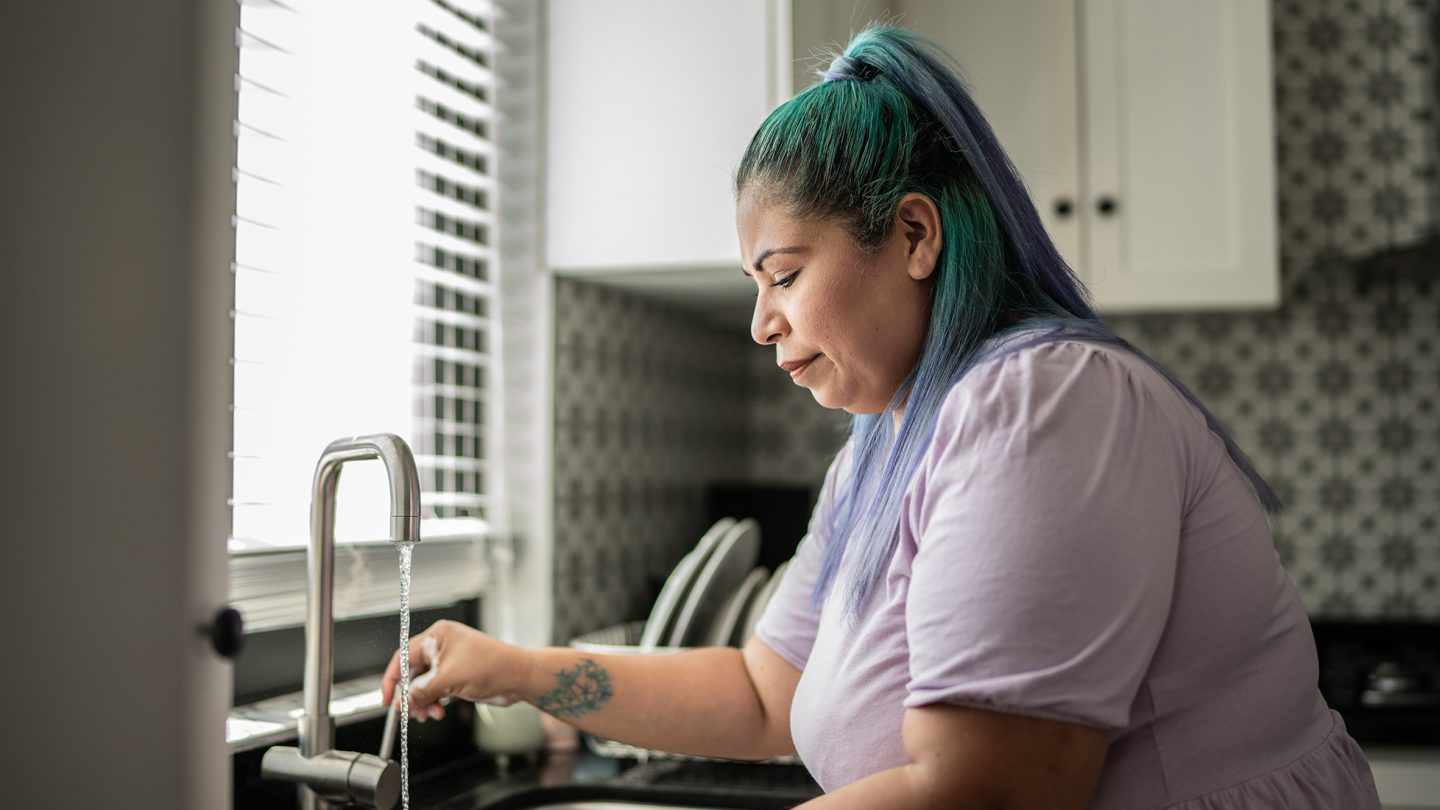Tobacco Withdrawal: Understanding the challenges of quitting smoking
Download guide
Not everyone gets all these nicotine withdrawal symptoms or feels them in the same way. For some those first few days and weeks these feelings can make you question if quitting is really worth it. What can you do about it?
How long does withdrawal from nicotine last and how does it feel?
Smokers become dependent on nicotine. It isn’t particularly harmful, but it is addictive. Nicotine levels drop after a couple of hours without a cigarette. As soon as this happens, withdrawal symptoms start and you feel the urge to smoke.
The symptoms of nicotine withdrawal can last from a few days to a few weeks. The symptoms are a mix of psychological, emotional and physical feelings that may make you want to give up and reach for a cigarette.
Dr McEwen, Chief Executive of the National Centre for Smoking Cessation and Training explains: “Don’t be hard on yourself if you’ve tried to quit before and it hasn’t worked out. Every time you take a draw on a cigarette a small dose of nicotine is delivered to your body. Nicotine isn’t particularly dangerous on its own, it’s the tar and carbon monoxide that cause harm. But nicotine is addictive, and it’s this that keeps you smoking.
“When you quit, your body has to get used to being without nicotine or having much less of it if you’re vaping or using nicotine replacement therapy. It’s this change that causes withdrawal symptoms. But the good news is these symptoms will pass as long as you don’t smoke at all, not even a puff.
Dr McEwen: Chief Executive of NCSCT on Quit Smoking
The good news is these symptoms will pass as long as you don’t smoke at all, not even a puff.
“Withdrawal symptoms often include cravings, increased appetite, irritability, low mood, restlessness, difficulty concentrating and poor sleep. Less common are physical symptoms including a cough, light headedness, constipation and mouth ulcers.
“But by understanding what to expect when you quit, and getting the right stop smoking plan in place, you can get through this short period of withdrawal and gain from all the benefits that stopping smoking brings. And finally, remember, withdrawal symptoms are a positive sign that your mind and body are getting used to being a non-smoker.”
Are you ready to kick the habit? Here’s what Stop Smoking London and the NCSCT recommend you do to help manage your tobacco withdrawal symptoms.
Get your team ready
Support and encouragement from friends, family and colleagues is so important to your stop smoking success

How to avoid nicotine withdrawal symptoms
Use a stop smoking prescription medication
You will probably feel a strong urge to smoke when you quit, but using a stop smoking prescription medication will significantly improve your chances of quitting for good. This is because they reduce withdrawal symptoms and cravings, making quitting easier and can double (and in some cases triple) your chance of stopping successfully. Which medicine is best for quitting smoking.
Use Nicotine Replacement Therapy (NRT)
Nicotine replacement therapy (NRT) works by replacing some of the nicotine you are used to getting from cigarettes. This can help to take the edge of your cravings and withdrawal symptoms.
NRT is safe to use and provides nicotine without all the harmful chemicals in cigarette smoke. You could use a patch to start with and if you find this isn’t enough, then try a higher nicotine dose or add in another NRT product, such as gum, a lozenge, a spray or inhalator.
Make sure that you use enough of your nicotine replacement therapy and for long enough, at least 12 weeks.
Know your smoking triggers
Smoking is linked to your daily routines and habits. This means that some of the cravings you experience will be because something reminds you about smoking. Different people have different ‘smoking triggers’. It might be seeing someone else smoking, wanting to celebrate, drinking alcohol or coffee. Or it may be how you’re feeling at the time.
Quitting smoking is hard enough without putting yourself in situations that remind you of smoking. So, before you quit, think about the times and feelings when you would usually want to smoke, then decide how you will avoid these. Making changes to your routine or swapping them for alternatives can really help you to quit.
Read more about how to quit smoking.
Look after yourself
Quitting smoking takes mental and emotional energy, so looking after your body and mind during this time is important. And remember to celebrate that you’re making a major and very positive change to your life. Keep your stress levels as low as you can, eat well, exercise regularly, try yogic breathing and get a good night’s sleep. Read more about how to quit smoking and stay calm in the process.
Get your team ready
There are going to be times during your quit attempt, especially in the first few weeks, when your cravings and withdrawal symptoms will be strong. This is when the support and encouragement of your friends, family and colleagues is going to be so important.
- Let the people around you know that you may be irritable and feel a little low in the first few weeks after you quit smoking. Explain how important quitting is to you, ask them to bear with you and reassure them this will pass.
- Ask friends and family who smoke to not do this in front of you, not to offer you a cigarette or leave any lying about.
- One way you can get your support team behind you is via social media. A simple status update to let people know you’re quitting and why may also motivate others to join you!
Keep motivated
When you are experiencing cravings and other withdrawal symptoms it can be really easy to forget why you are quitting. So, reminding yourself of why you are doing this can really help keep you motivated. And take things day by day, or even an hour at a time if you need to.
Be determined, keep motivated and make this your time to quit for good. To help keep you on track sign up to receive daily motivational stop smoking text messages.
Ask for help
You’re much more likely to succeed at quitting with support. If you’d like help at any stage of your stop smoking journey, search for your local stop smoking service. You can also call 0300 123 1044 to speak to a Stop Smoking London adviser.
It’s quite normal to experience low mood after quitting. This is usually manageable and short lived (around four weeks). If you start feeling so low that it’s affecting your daily routine, or if it lasts longer than four weeks, speak to your doctor for help and support.
When you feel like giving up it’s worth remembering that there are so many benefits to quitting smoking, that most people who quit are healthier and happier and you will be too.



